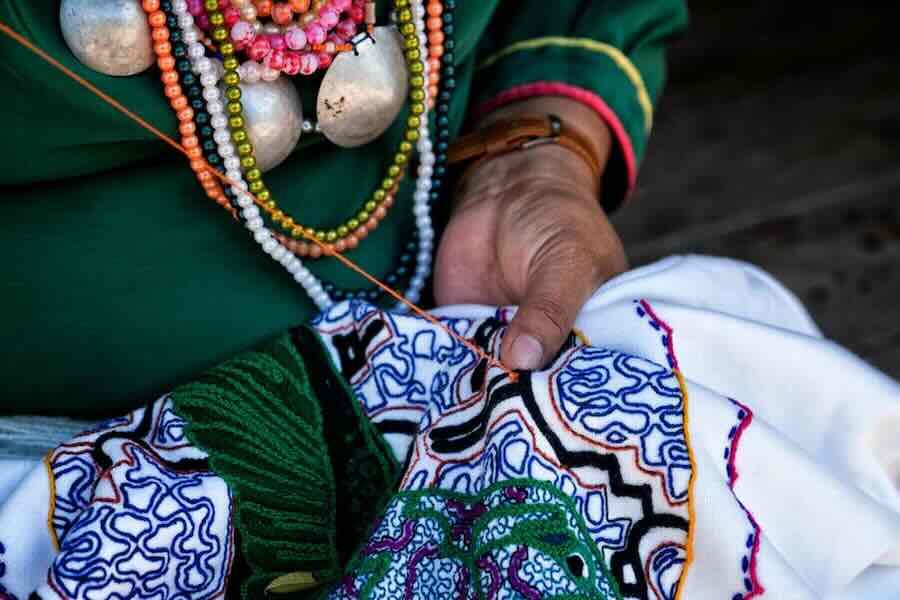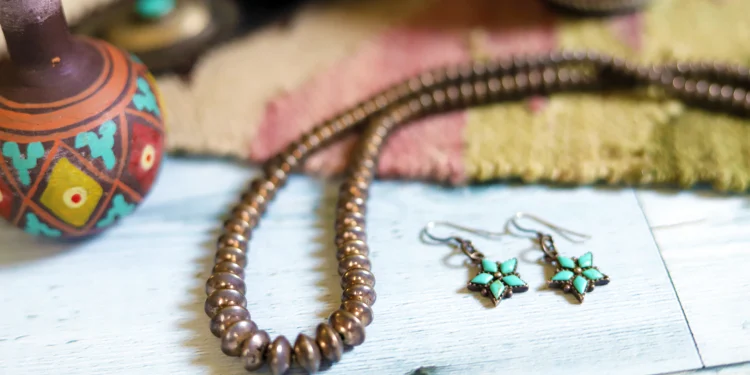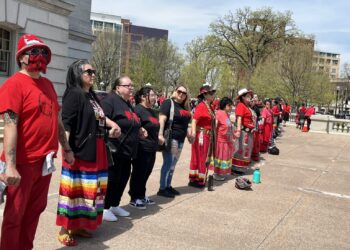A 45-year-old Florida man has been accused in Wisconsin with the fraudulent sale of jewelry that is purportedly Native American-made.
Jose Farinango Muenala, a resident of Casselberry, Florida, has been charged with wire fraud, mail fraud, and misrepresenting Indian-produced products, according to a press release from the U.S. Attorney’s Office for the Western District of Wisconsin.
The indictment claims that Farinango Muenala implemented a fraudulent scheme from December 3, 2015, to January 17, 2024, in which she submitted applications to art shows throughout the United States in order to sell jewelry.
Farinango Muenala falsely claimed to be Native American and to have created the jewelry that was on exhibit for sale in those applications. Farinango Muenala is not a member of an Indian tribe nor is she a Native American.
Edward Grace, Assistant Director of the U.S. Fish and Wildlife Service Office of Law Enforcement, stated that Jose Farinango’s false tribal affiliation deceived consumers and adversely affected the economic and cultural well-being of Native American artists. “Our team of special agents is committed to safeguarding Native American and Alaska Native artists on behalf of the Indian Arts and Crafts Board and the Department of the Interior.”
The indictment alleges that Farinango Muenala directed an email to the Mercer (WI) Chamber of Commerce on April 17, 2023, to implement this scheme. The indictment also claims that Farinango Muenala caused a check and an application to Loon Day 2024, a popular festival featuring over 250 artists, to be delivered to the Mercer Chamber of Commerce by U.S. mail between October 29, 2023, and November 10, 2023, for the same purpose.
Farinango Muenala intentionally advertised and exhibited jewelry for sale in a manner that falsely implied that the jewelry was produced by an Indian, an Indian product, or the product of a specific Indian or Indian tribe residing in the United States.
According to Meridith Stanton, director of the Indian Arts and Crafts Board, “the Indian Arts and Crafts Board administers and enforces the Indian Arts and Crafts Act, a truth-in-marketing law.” “The Act is designed to safeguard the economic livelihoods and cultural heritage of Indian artists, craftspeople, and their tribes, as well as the purchasing public, by eliminating counterfeits from the Indian arts and crafts marketplace.”

Authentic Indian art and craftwork significantly facilitates the transmission of cultural traditions, traditional knowledge, and artistic skills from one generation to the next. Individuals who market counterfeit Indian art and craftwork, such as Jose Farinango, who operates under the pretense of “the Pueblo Nation of New Mexico,” undermine the foundation of Indian culture and livelihoods and exploit unsuspecting consumers. Consequently, they must be held accountable.
U.S. Attorney Timothy O’Shea concurred with Stanton’s assertion, asserting that “Prosecuting these types of fraud cases is a critical component of our efforts to assist Tribal Nations.” The indictment that was announced today is not solely concerned with the enforcement of the law; it also aims to safeguard and preserve the cultural heritage of Native Americans.
Farinango Muenala is subject to a maximum penalty of 20 years in prison for the wire and mail fraud charges and five years in prison for the misrepresentation of Indian-produced commodities offense if convicted.
A joint investigation by the U.S. Fish and Wildlife Service and the Department of the Interior Indian Arts and Craft Board led to the allegations against Farinango Muenala.




